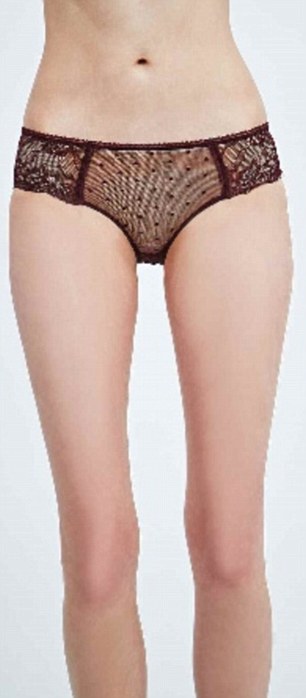
The Advertising Standards Authority (ASA) have banned this picture of a skinny model from being used on the Urban Outfitters website as it is ‘irresponsible and harmful’
Promote body shame Urban Outfitters
Banned, fashion chain's ad with a too-thin model: Urban Outfitters ordered to remove photo from website amid claims it could fuel anorexia
By SEAN POULTER, CONSUMER AFFAIRS EDITOR FOR THE DAILY MAIL
PUBLISHED: 00:01, 31 December 2014 | UPDATED: 11:24, 31 December 2014

The Advertising Standards Authority (ASA) have banned this picture of a
skinny model from being used on the Urban Outfitters website as it is
‘irresponsible and harmful’
A picture of a skinny model on a fashion chain’s website has been outlawed as ‘irresponsible and harmful’.
The clothing company Urban Outfitters has been ordered to remove the photo amid claims it could fuel anorexia.
The ban has been imposed by the Advertising Standards Authority (ASA), which was particularly concerned about the model’s ‘thigh gap’.
The image, which shows only the lower half of a young woman’s body, is part of an advertisement on the US firm’s British website for a pair of polka dot mesh briefs priced at £6.
The ASA received a complaint from an unnamed source and ruled in their favour. In its judgment it said: ‘The complainant, who believed that the model in the picture was unhealthily thin, challenged whether the ad was irresponsible and harmful.’
The watchdog has told the firm it has until today to remove the picture and ensure its adverts are produced responsibly in future.
However, it was still being used on the website yesterday, alongside many others which are very similar.
It is under no obligation to take down the additional images because they are not the subject of the complaint. In its ruling, published today, the ASA said: ‘We considered that the model was very thin, and noted, in particular, that there was a significant gap between the model’s thighs, and that her thighs and knees were a similar width.
‘We understood that Urban Outfitters’ target market was young people and considered that using a noticeably underweight model was likely to impress upon that audience that the image was representative of the people who might wear Urban Outfitters’ clothing, and as being something to aspire to. We therefore concluded that the ad was irresponsible.’
The firm denied the claims, saying: ‘The model was represented by one of the UK’s most successful and well-respected agencies. We do not believe she was underweight.’
It added the model had a healthy waist measurement of 23.5inches, was naturally tall and slim and had worked for a number of other fashion brands. The ASA warned it could ban the company’s adverts from internet search websites if it fails to abide by the ruling.
Minister for Women and Equalities Jo Swinson, who has campaigned on the issue of body confidence, welcomed the ASA ruling.
She said: ‘Retailers will benefit from having a diverse range of models and mannequins which is not only a positive way of challenging low body confidence but makes good business sense too.
'Given the worrying rates of eating disorders especially among young people, I applaud the Advertising Standards Authority for encouraging positive body image, and for taking steps to ensure that retailers comply with this. I hope that Urban Outfitters remove these images, and that other retailers take note of these unacceptable images.'
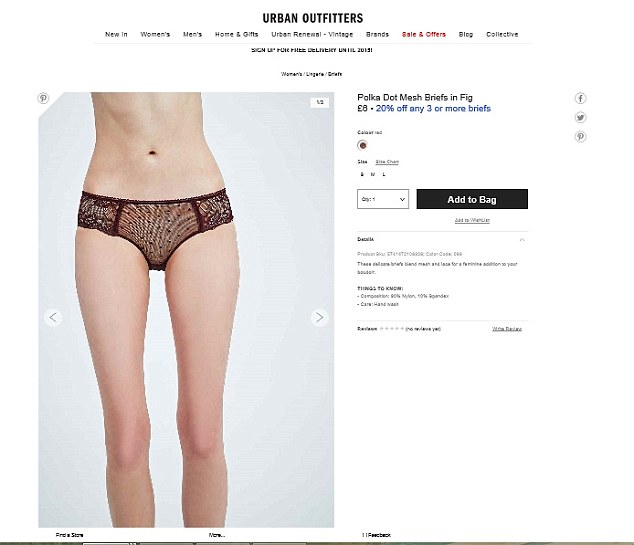
The advertisement was on the US firm's British website for a pair of polka
dot mesh briefs priced at £6
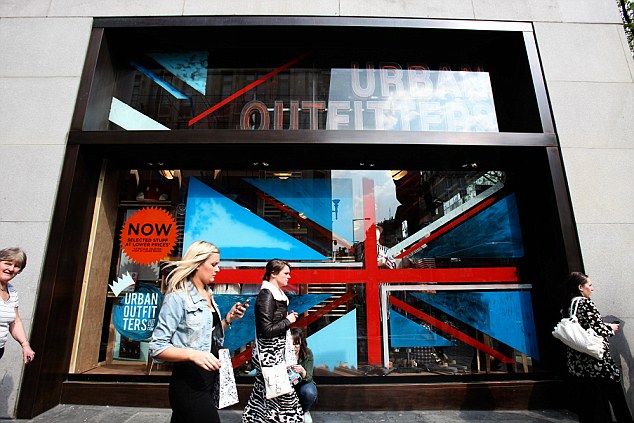
Urban Outfitters, who also have stores across the UK (pictured), said they do
not believe the model used in the website image was under weight
What is anorexia? Howcast describes diagnostic criteria
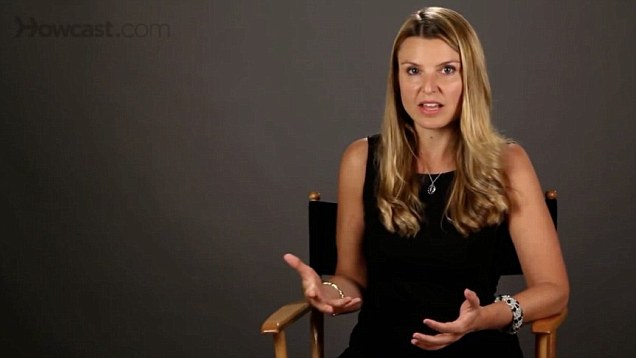
....and the Honey Monster's healthy boasts are demolished
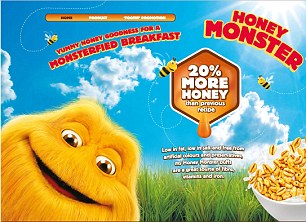
The Advertising Standards Authority has been banned from claiming the cereal
contains 'honey goodness'
The Honey Monster has been slapped down by advertising watchdogs for suggesting honey is good for children.
The cereal that the character promotes, Sugar Puffs, has been banned from claiming it contains ‘honey goodness’ – as honey is just as bad for the body as sugar.
The Advertising Standards Authority ruled that the boast amounts to a bogus health claim.
Sales of honey are soaring, apparently because of the belief that as a natural product it is better for you.
But health experts point out that once honey is consumed it behaves the same way in the body as sugar.
The advert on the cereal’s website carried the claims: ‘Yummy Honey Goodness For A Monsterfied Breakfast... 20% More Honey’.
This idea that the cereal – which contains 8.6 grams of sugar per 30g serving – was full of goodness was backed up by claims that it was low in fat and salt and a good source of fibre, vitamins and iron.
The firm insists the website was simply trying to convey that they had increased the amount of honey and reduced the use of sugar.
However, it has since removed use of the word ‘goodness’.
Read more: http://www.dailymail.co.uk/news/article-2891708/Banned-fashion-chain-s-ad-model-Urban-Outfitters-ordered-remove-photo-website-amid-claims-fuel-anorexia.html#ixzz3NV7fKiPA
Follow us: @MailOnline
on Twitter | DailyMail
on Facebook